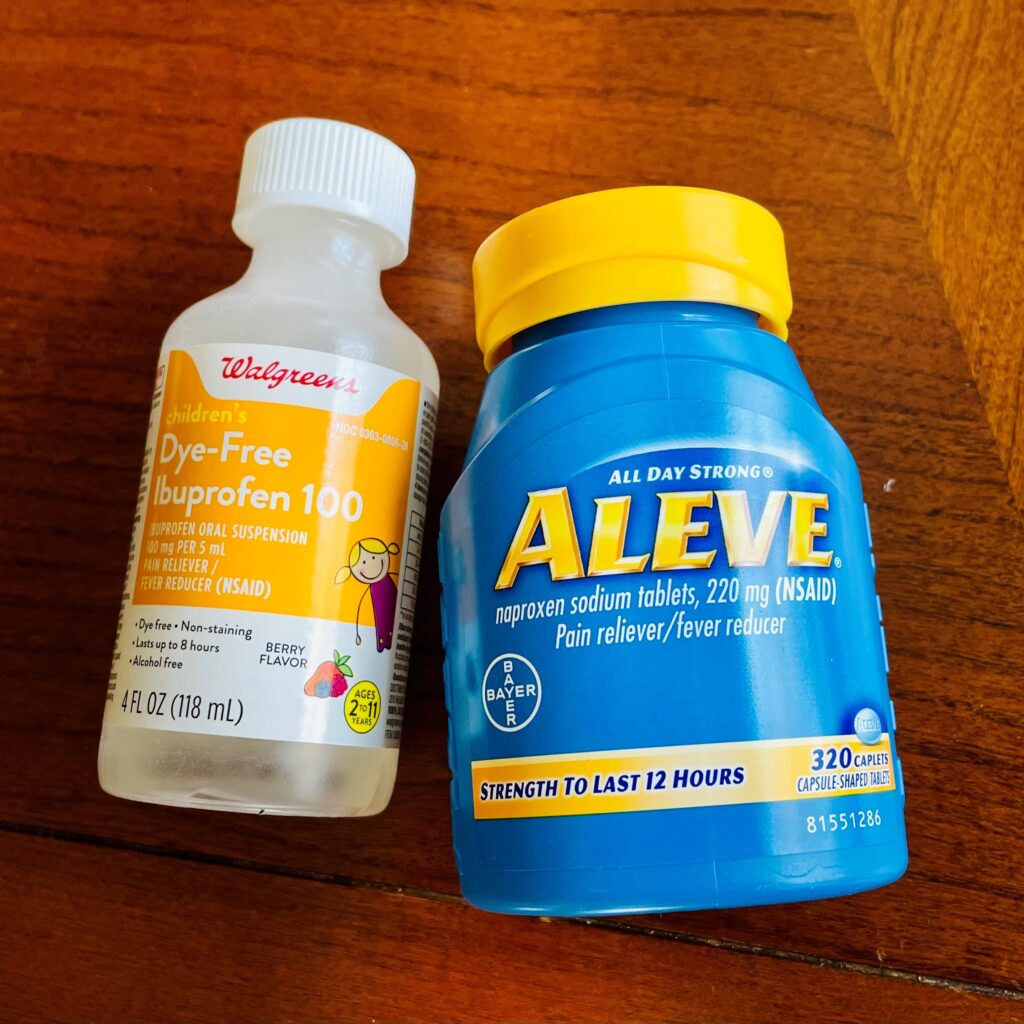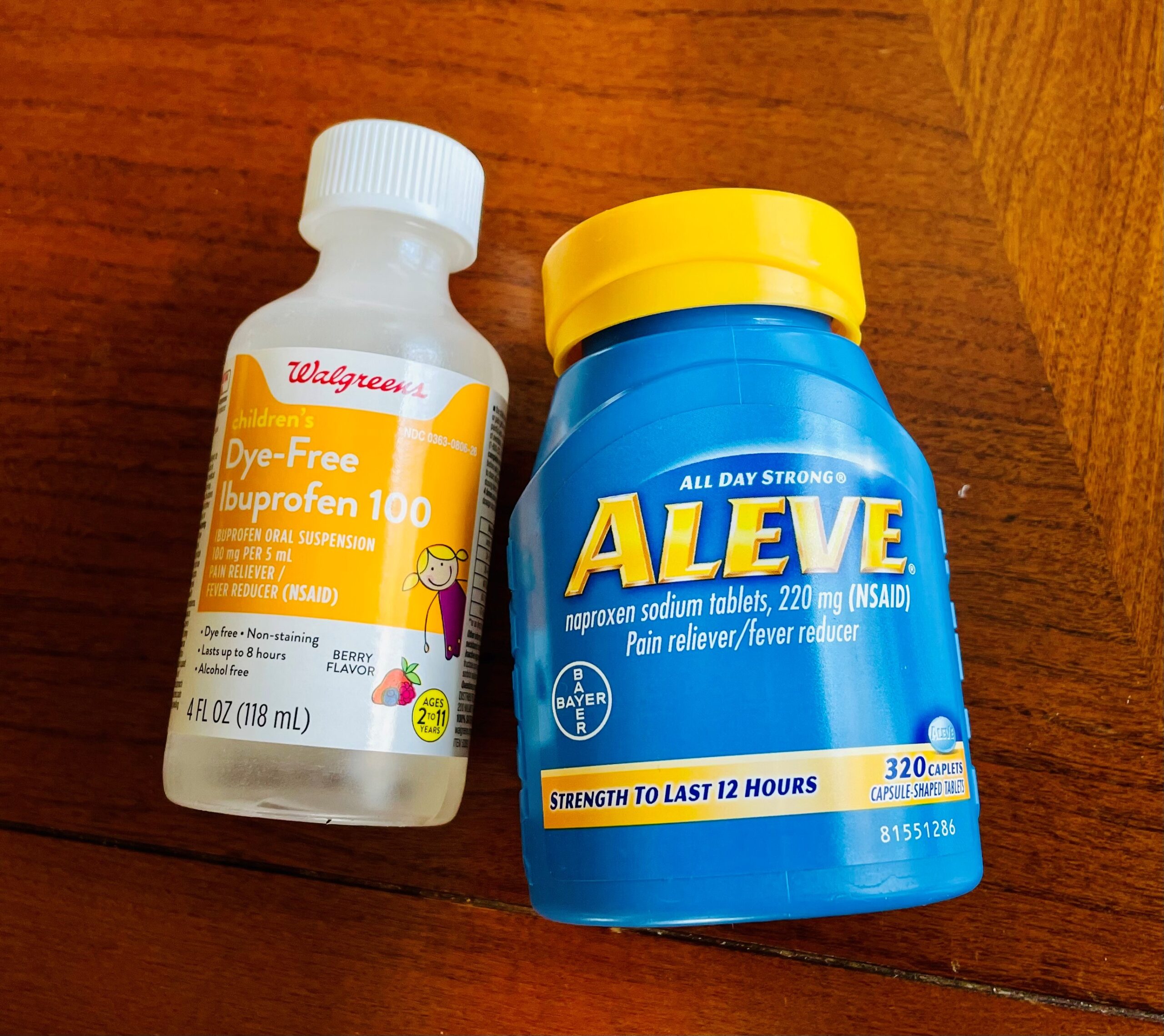9 Risks Associated with Commonly Used PainKillers

NSAIDs: A Double-Edged Sword!!
Lizzy’s Story: Last month I was on-call for gastro-intestinal emergencies at the hospital. I get a call from the emergency room (ER) doctor at 10 PM. Liz a 68-year-old lady was brought in by an ambulance after she fell in her bathroom floor. Mike her 74-year-old husband stated: she started vomiting blood that evening and had some stomach upset the day prior. The ER doctor told me that she had history of severe arthritis of her knees. She was taking 800 mg Motrin three times daily for the last month for pain control.
Hospital Course: She had already received 2 units of blood. She needed an emergency upper endoscopy to locate the cause of bleeding. I hurried to the hospital and started the endoscopy at 1130 PM. As I entered into her stomach, it was full of blood obscuring my views. Even though I have seen this many a times, it still sends shivers down my spine every single time. Because sometimes (less often but possible), no matter what you do, there is nothing you can do to stop the bleeding. I negotiated my way through this ocean of bloody mess. And at the beginning of her small intestine, I saw this giant ulcer with a bleeding vessel. I was able to inject it a vessel constrictor agent and then cauterized it. She was transferred to the ICU. Luckily, she stabilized and did not bleed again.
She saw me last week in the office. She now was taking acetaminophen for pain control and was so so afraid to take Motrin again.

Headache- Should you take an Advil?
When you have a headache or develop muscle aches after an intense workout, or menstrual cramps become a bother during your periods you look for a quick remedy. Pull out an Advil and say good riddance to the pain and misery. However, these painkillers are a double-edged sword. They help us heal from the pain and suffering. But they may also cause adverse reactions. Meaning: may harm our health. All drugs have benefits and risks.
These drugs constitute the fifth most commonly utilized drug class in the US in all age groups. Thus it is critical to talk about these class of medicines. About 1/3 of us rely on these painkillers on an almost weekly basis. Although these drugs are over-the-counter, yet they are not as benign as one may think.
What are Non-Steroidal Anti-Inflammatory Drugs (NSAIDs)?
These are a class of medicines used to treat pain, fever and inflammation. Some of them are available over-the counter in the US (i.e. can be purchased without a prescription). Various examples include Ibuprofen (Motrin, Advil), Naproxen (Aleeve), Aspirin, indomethacin, diclofenac and so forth.
How do NSAIDs work?
These drugs block COX1 and COX 2 enzymes in our bodies. These enzymes help us synthesize a group of fatty acids called prostaglandins. Prostaglandins mediate pain and inflammation in our body. So due to the lack of certain prostaglandin synthesis: pain, inflammation and fever reduces.
However, these prostaglandins also play some other important functions in our bodies. Such as, protecting our intestinal lining from the erosive effects of stomach acid. And that’s why long-term or heavy use of these drugs is notorious in causing GI ulcers. Suffice to say that prolonged suppression of these prostaglandins can adversely impact our health.
What are the risks associated with NSAIDs?
From the very first day of its use, all NSAIDs affect the cardiovascular, gastrointestinal, kidney and respiratory systems.
- Increase the risk of gastrointestinal (GI) bleeding,
- Myocardial infarction or heart attack
- Stroke
- Worsen high blood pressure: They increase systolic blood pressure by 5 mmHg. Also, increase fluid retention. Notably, these effects in turn significantly increase the risk of non-fatal and fatal cardiovascular events. All NSAIDs nearly double the risk of hospitalization due to heart failure.
- Kidney failure: Especially in older patients aged >65 years, these drugs more than doubles the risk of acute kidney injury in the next 30 days.
- Worsen asthma: Can cause constriction of the airways known as bronchospasm. Research proves that 5–10% of adult patients with asthma will have an acute exacerbation in symptoms after taking NSAIDs.
- Worsen diabetes control: NSAIDs can result in a rise in HbA1c in type 2 diabetes.
- Live injury: Can cause elevation in liver enzymes
- Effects on Pregnancy: The use of NSAIDs around the time of conception can increase the risk of miscarriage.
Do you know that 30% of hospital admissions for adverse drug reactions occur due to NSAIDs. This is because of the extensive use of these medicines. Majority present with bleeding, heart attack, stroke, and kidney damage. Research showed that in general medical practice 6% of patients who were prescribed NSAIDs revisited the doctor with a potential detrimental reaction over the next 2 months. However, with some caution and education, most of these negative reactions are avoidable. If we identify vulnerable groups and predict potential drug interactions the burden of this harm can be reduced.
I will continue this discussion in the next section on who is at highest risk and how can you minimize your risk of harm!
Sir William Osler concludes it well in this one statement: “The person who takes medicine must recover twice, once from the disease and once from the medicine.”

